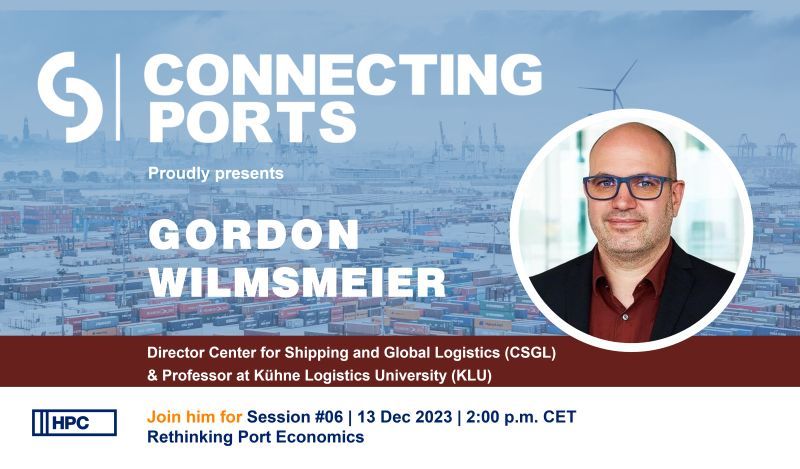PortEocnomics members Gordon Wilmsmeier and Jason Monios will be hosted at @ Connecting Ports – The Live Talk Show by HPC Hamburg Port Consulting GmbH this Wednesday – 13th December @14:00 CET (08:00 Colombia – GMT).
Why should we rethink port economics? Are we ready to “finally” internalize external costs? Why should we explore degrowth scenarios? We live in an environment where disruptive and less controllable events are becoming more common. We argue that traditional concepts that aim to overcome disruptions and return to business as usual are flawed. Instead, “deep adaptation” to create alternative pathways into the future should be explored.
Gordon and Jason, along with Michael Horton, will discuss “Rethinking Port Economics” with Christina Prieser.Have a look up front at some of Jason´s and Gordon’s research:
2022: Maritime governance after COVID-19: how responses to market developments and environmental challenges lead towards degrowth. Marit Econ Logist 24, 699–722. https://lnkd.in/eqa38TVd2020: Deep adaptation to climate change in the maritime transport sector – a new paradigm for maritime economics?, Maritime Policy & Management, 47:7, 853-872. https://lnkd.in/e_E-n6x
2021: Deep adaptation and collapsology. In Knowledge For The Anthropocene. Cheltenham, UK: Edward Elgar Publishing. https://lnkd.in/ed4vzAg6
2015: The production of capitalist “smooth” space in global port operations, Journal of Transport Geography, Vol. 47, 59-69, ISSN 0966-6923. https://lnkd.in/eqD93bfn
Interested in listening to the conversation? Register at https://lnkd.in/e7N2DaJE











